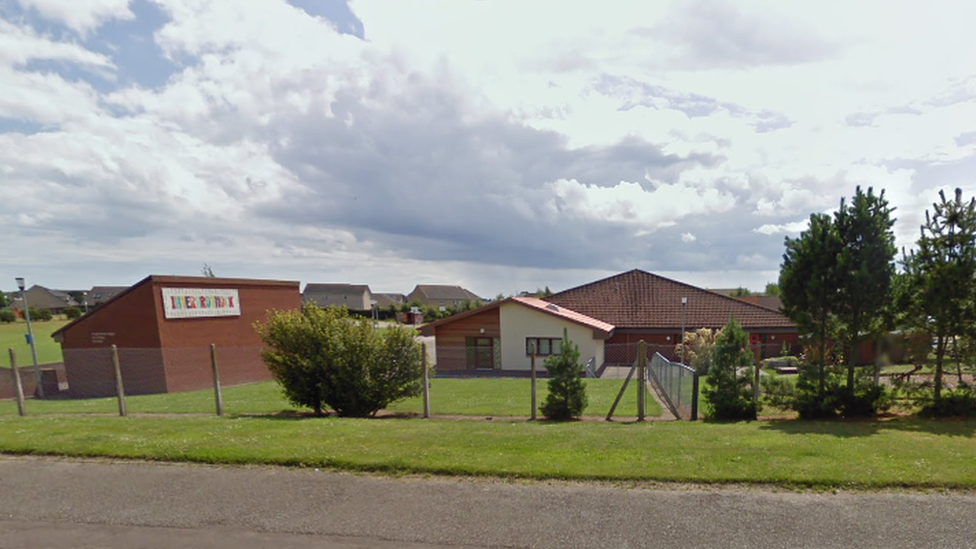Welsh pupils refused hot school dinners due to credit debt
- Published
- comments
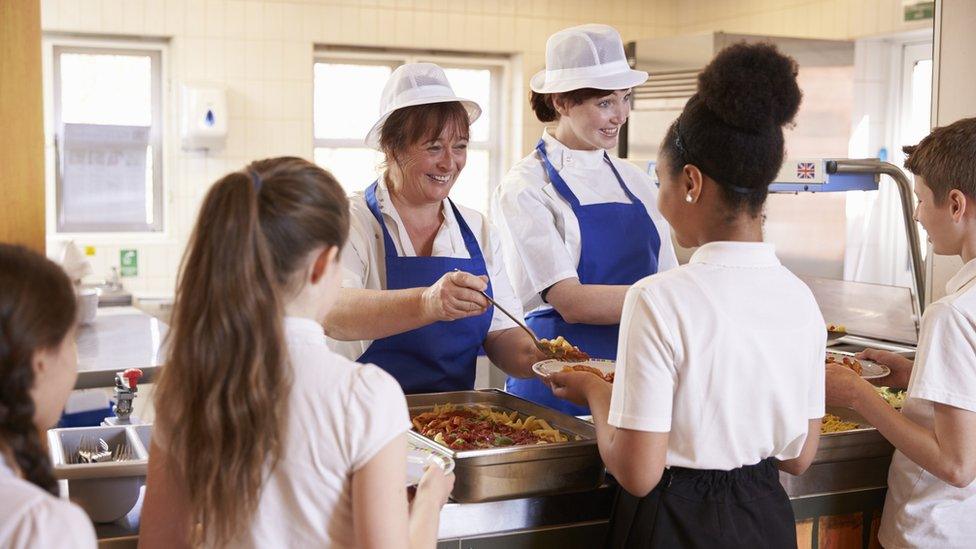
Children's meals are often paid for in advance using apps
Pupils are being refused a hot meal in school if they have no credit on their cashless payment account, a group of councillors has claimed.
When that happens, food can even be thrown away, according to the North and Mid Wales Association of Councils, external.
One woman said she was upset her grandson was refused a meal through "no fault of his own" at his Powys school.
Powys council said it operated a "zero-tolerance'" policy to school meal debt.
Councillor Brian Roberts, chairman of the association of councils, said the "scandal" was "as if we are in the dark ages".
Various cashless systems have been introduced across Wales during recent years - where payment can be made using either a card, a fob or even via a fingerprint scanner.

ParentPay was created by a former teacher in 2002 for school online payments
Where a pupil is not eligible for a free school meal, it is the responsibility of parents or guardians to ensure there is credit on the account to buy a meal.
But councillors from across the area said they knew of pupils in their counties who had been refused a school meal because of a lack of credit.
Mr Roberts said: "This situation is obviously widespread over Wales and is a disgrace in 2019.
"No young person should go without. How are they supposed to learn when they are hungry?"
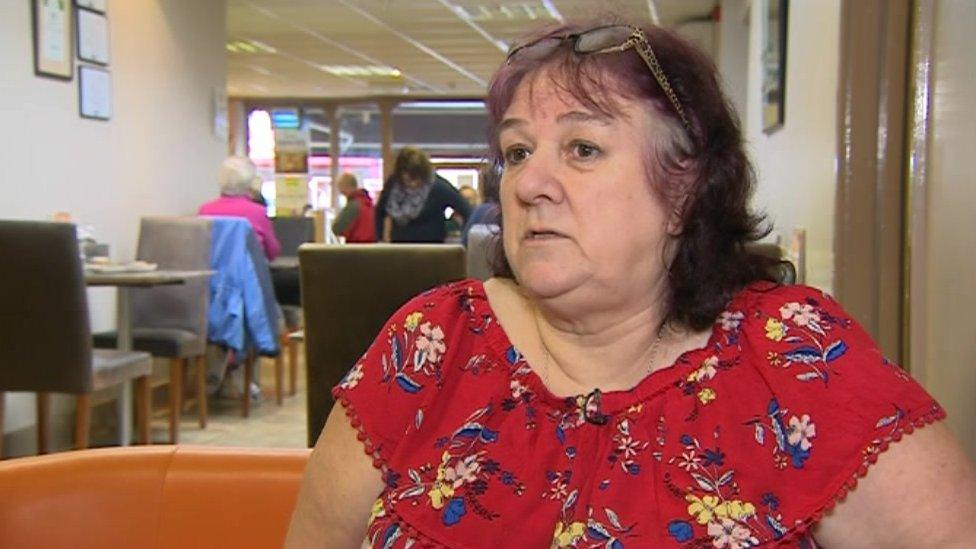
Grandmother Heather Chave said schools should recognise "one-off" problems
Heather Chave, from Welshpool, Powys, is the primary carer for her grandson who has been refused food in school a number of times because of a lack of credit.
She said: "He has had his dinner on a tray and went to pay [but] was refused [because] there was no money on his card, so the dinner was taken away from him.
"I was upset. We had a discussion and it turned out it had happened before and to other children.
"On one occasion I had [paid] late at night - it showed on the ParentPay system that I'd paid - but it hadn't gone through onto his card by the next day.
"So that's no fault of mine nor his - but he still had no dinner."
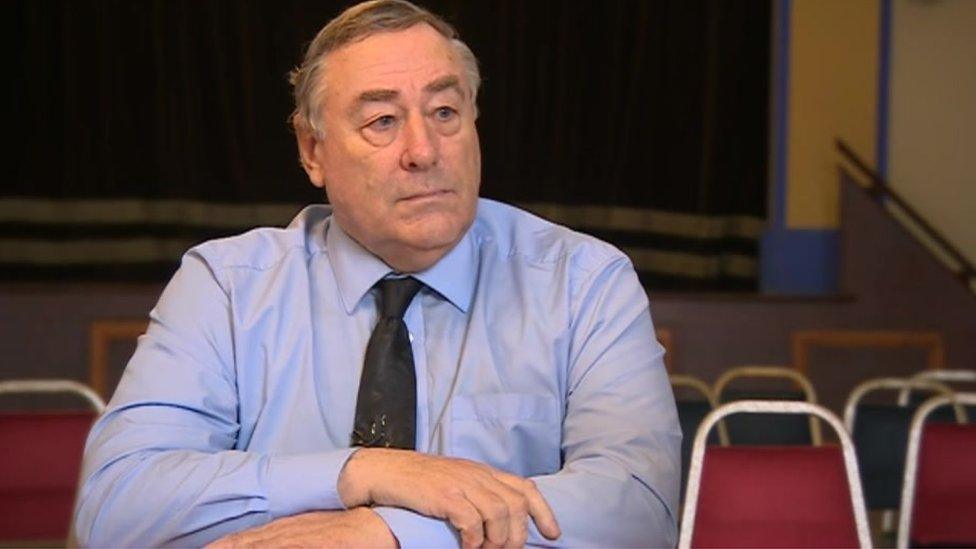
Robert Robinson said members of the North and Mid Wales Association of Councils were "very concerned"
A spokesperson for ParentPay said they had investigated, and "all payments relating to this school were accurately processed and the children's accounts updated accordingly.
"No support requests were referred by the school to ParentPay on this issue.
"Unfortunately, the till system used at the school in question has recently had some connectivity issues."
Robert Robinson, secretary of the association of councils, said councillors from across the region had seen similar issues in their counties and now wanted to meet with the Welsh Government.
He said "Members of the association are very concerned. They found it very difficult to comprehend and said something should be done to alleviate the situation."
Councillor Joan Butterfield, from Rhyl, said if a pupil in Denbighshire had no credit they were not allowed a hot meal - but were given a cheese sandwich and a drink of water.
She said "Each school makes a finite number of meals and it seems if a child is not in credit then a meal is thrown away. It's a nonsense.
"Why not give the child the meal and let their parents know they are in deficit?
"We need to fix the problem and not make the students suffer at all for a lack of credit."
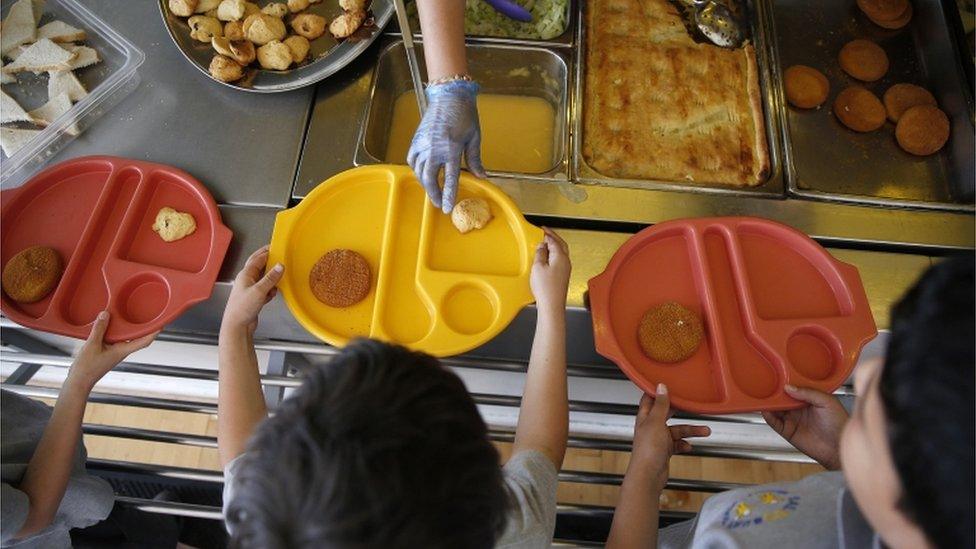
Parents can set up notifications if their online balances for meal payments are low
Powys council operates a "zero-tolerance" policy to school meal debt in order to reduce the amount of money owed to the authority by parents.
A spokesman said: "It is parental/carer responsibility to ensure that there is sufficient credit on a ParentPay account to buy school meal and they receive weekly updates on their balance if it goes into debt.
"Parents can also setup automated alerts on their ParentPay account to warn them that their balances are reaching a low level.
"If buying a meal takes an account into debt the purchase would be allowed and the meal provided but the pupil would be informed and asked to top up the account.
"The council works with parents and carers to maximise the uptake of free school meals and support them in any way possible to ensure they receive their entitlement."
Denbighshire council has also been asked to comment.
- Published18 October 2018

- Published1 May 2018

- Published27 June 2018
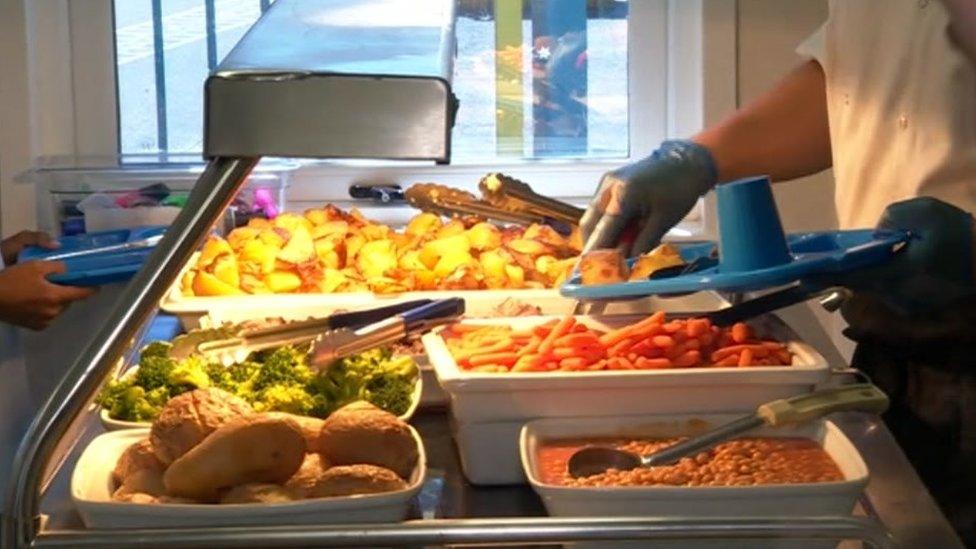
- Published2 April 2018
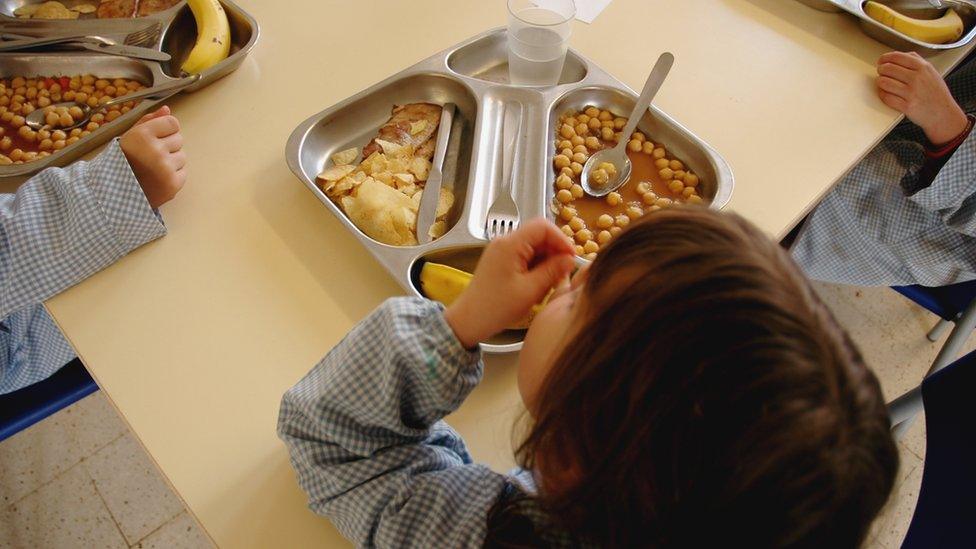
- Published6 April 2018
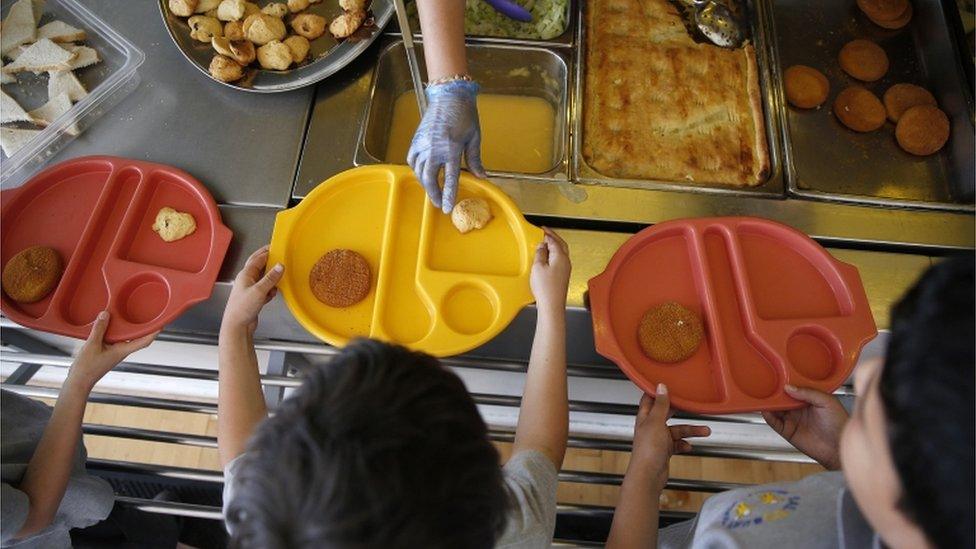
- Published24 January 2018
